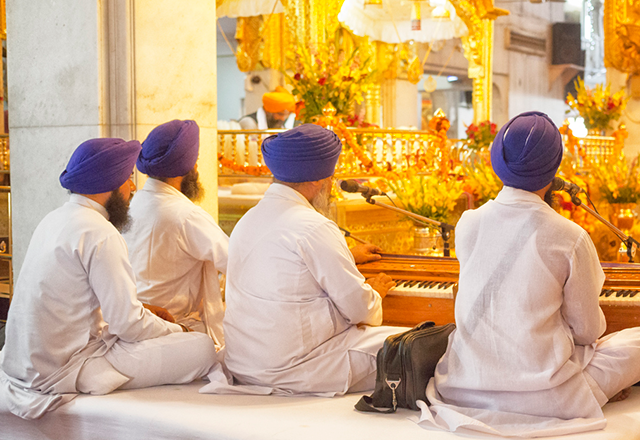Religious and Spiritual Diversity
Israel-Hamas Conflict: Scope and Nature of Events
Johns Hopkins Briefing Series. Experts Discuss Evolving Conflict in Israel and Gaza: Johns Hopkins University Scholars Offer Perspective and Analysis of the Breaking Events Occurring in the Middle East.
Additional Resources:
- Religious beliefs are common. After conducting a 2014 survey, the Pew Research Center noted several facts regarding the demographics of religious practice in the U.S.:
- Of adult Americans, 89% believe in God, down slightly from 2007.
- People over age 40 are more likely to identify with a religion or engage in religious practices.
- Islam is the fastest growing religion in the world, including the U.S.
- 70% of Americans attend a religious service monthly.
- 55% of U.S. adults say they think about the meaning of life at least once each week.
- 23% of U.S. adults have no religious affiliation — the largest percentage of people in this category are in the millennial generation.
- Of Americans, 66% say they regularly feel a deep sense of “spiritual peace and well-being.”
- JCAHO has a recognized standard of care. The Joint Commission on Accreditation of Healthcare Organizations (JCAHO) has recognized the influence of spirituality on hospitalized patients by requiring a hospital chaplain or pastoral services in the standards for accreditation of all hospitals since 1999. According to the JCAHO, a spiritual assessment should be performed on every patient, identifying “at a minimum” the patient’s denomination, beliefs and spiritual practices.
- Knowledge of religious beliefs means better care for patients. Clinicians should be aware of the more common health beliefs of religious groups in order to better counsel and care for patients. Health beliefs vary according to culture, education and experience. Religious beliefs can be very strong and can be the deciding factor in medical decisions.
- What is a spiritual history?
Taking a spiritual history is the gathering of information from a patient about spiritual values, religious beliefs, spiritual needs and concerns, and what gives the patient’s life meaning in order to understand how to best take care of the patient. It should include questions about how patients’ religious and spiritual views affect their health, whether they use religious and/or spiritual coping, whether they have specific spiritual concerns at the time, and whether they have a community of faith, including a faith leader or other spiritual counselor to call.
- When should I take a spiritual history?
It should be incorporated into the work-up of all hospital patients, including seriously ill patients, those with stress or distress, patients with substance use disorder, and those with issues related to spiritual or religious views.
- How do I take a spiritual history?
A spiritual history can be as informal as asking, “What is getting you through this time in the hospital or clinic?” Or it can be more formal, including use of the FICA tool and HOPE method. - F: Faith, belief, meaning
- I: Importance and Influence of religious and spiritual beliefs and practices
- C: Community or Church connections
- A: Address/Action in the context of medical care
- H: Addresses the person’s basic spiritual resources, such as sources of Hope, without immediately focusing on religion or spirituality. Using this method allows meaningful dialogue with patients of diverse backgrounds, including those whose spirituality is outside the boundaries of traditional religion or those who have been alienated from their religion. It also allows those for whom religion, God or prayer is important to volunteer this information.
- O: Focuses on the importance of Organized religion in patients’ lives.
- P: Focuses on the aspects of a patient’s Personal spirituality and religious practices. If the patient relates meaningful experiences at this point, the interviewer can proceed with more specific questions regarding religion and personal spirituality. If not, then open-ended follow-up questions can be asked to open the door for patients to discuss important spiritual concerns.
- E: Focuses on the Effects of a patient’s spiritual and religious beliefs on medical care and end-of-life issues. These questions help redirect the discussion back to clinical issues and medical decision-making.

Reasons to address spirituality and religious heritage as part of cultural diversity:
Health professionals should be aware of the major moral and religious norms that guide the medical decision-making of many patients. Physicians should be especially mindful of potentially strong religion-based health beliefs when discussing advance care planning and treatment options regarding blood products, contraception, abortion and euthanasia.
How to address spiritual issues:
FICA Tool
The FICA tool is most commonly used at Johns Hopkins Medical Institutions.
HOPE Method
Some practitioners have adopted the HOPE method of taking a spiritual history because of its ease of use and the way it smoothly transitions from social support to spiritual topics (Anandarajah and Hight, Amer Fam Phys 2001).
